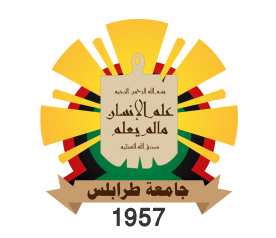Sociology in Libya

November 05, 2021
Sociology became an important subject in Libya at the time when the Libyan University was established in the city of Benghazi in 1955. The Faculty of Arts and Education was created with five majors: Arabic language, history, geography, philosophy, and sociology. The faculty started with 33 male students, 13 of whom were sociology students. The first class of nine students graduated in the 1959-1960 school year. The Department of Sociology was then changed to a Department of Philosophical and Social Studies. In the 1972-73 academic year, the two departments were divided into independent departments. In 1966-67, a Faculty of Education was established in Tripoli, and a Department of Sociology was opened there in the year 1971-72.
Further developments
As a result of the political, economic, and social changes that occurred in Libya after the discovery of oil in 1959, the Libyan government started paying much more attention to education in general and higher education in particular. Many graduate students were sent overseas, especially to the USA and Western Europe to pursue their postgraduate degrees.
Due to the development of higher education in Libya, and the need for more faculty members to teach in the newly established universities and departments of sociology that began to grow in various local universities, more graduate students were sent abroad. As soon as they graduated, they started teaching and assisting the foreign faculty members who were at the time the main staff members in every sociology department. By the year 2002-03 there were more than 27 faculty members throughout Libyan Departments of Sociology. These departments offered a variety of courses in sociology, including Social Theories, Research Methodology, Social Statistics, and Data Analysis as core courses. Other courses included Social Change, Modernization, Demography, Industrial Sociology, Social Issues, etc.
Thousands of students graduated from all the departments opened across the country. Such a huge number of graduates and the increasing number of qualified staff members to teach at the graduate level led to a focus on graduate studies within the country. This was also due to the external conflict that was going on between Libya and the Western countries, mainly America. Graduate programs were established in the two major universities in Libya: the University of Benghazi, and the University of Tripoli. At the moment, the majority of the departments offer at least a master’s degree in sociology. One of the most important achievements in education in Libya was the establishment of the Libyan Academy for Postgraduate Studies in Tripoli in 1988. It has branch campuses in Benghazi, Misurata, Darna, and Ejdabia. The Academy offers various masters and PhD degrees in different fields of knowledge such as the sciences, engineering, law, languages and literature, and social sciences.
Most graduate programs in all sociology departments were mainly focused on issues of concern to the Libyan society, such as modernization and development. Now, the attention is directed to issues related to globalization, (post)modernization, poverty, international conflict, epidemics, and so forth.
Challenges
This is how sociology became rooted and grew into one of the most important social sciences in Libyan universities and within the Libyan Academy for Postgraduate Studies. At the same time, sociology in Libya has faced many barriers, including the lack of solid qualified staff members for both undergraduate and postgraduate programs; most faculty came from neighboring countries for short periods to get college teaching experience before they went on to other schools, especially in the Gulf States. On the other hand, most staff members who taught at the University of Libya were well-known scholars in their original universities.
Other obstacles include the deficiency of libraries and the lack of books and journals. In addition, there is a lack of advisors to guide graduate students and lead them to choose the right research topics, theory, or methodology. To illustrate these problems, I will refer to interviews conducted by my colleague Omran M. Al Gueeb who dealt with sociology in Libya in an article delivered at a national conference. Among other problems, he cited the lack of a solid and clear strategy for graduate studies. One outcome of this was that some of the topics chosen by students and their supervisors had little relevance for Libyan society.
As a result of improving the quality of both undergraduate and graduate programs, and establishing quality control offices in each university and college in the beginning of the 1990s, things got much better. Solid courses in various areas of sociology were introduced in the programs, and very competent staff members in research methodology, sociological theories, social statistics, and data analysis joined sociology departments in most universities. These efforts were paying dividends as Libyan students now did not have problems pursuing higher degrees abroad.
Conclusion
The above describes how sociology in Libya was rooted with the establishment of the Libyan University in the mid-fifties and developed through the years to become one of the most important fields in most Libyan universities. On the other hand, it faced many problems that have affected its development, including weak curricula, especially in theory and methodology. Libyan scholars, like so many elsewhere, failed to develop their own theories and applied Western theories to analyze social phenomena in Libya. However, due to the increasing number of sociology graduates from Western and other universities, sociology has grown into a more solid field among the social sciences in Libya. Moreover, a lot of sociology graduates have become leaders in Libyan institutions, and a few of them hold very high positions in various ministries such as the Ministry of Social Affairs and the Ministry of Education.
Mohammad Eltobuli, University of Benghazi, Libya and former President of the University of Benghazi <Mohammad.Tobuli@uob.edu.ly>

















